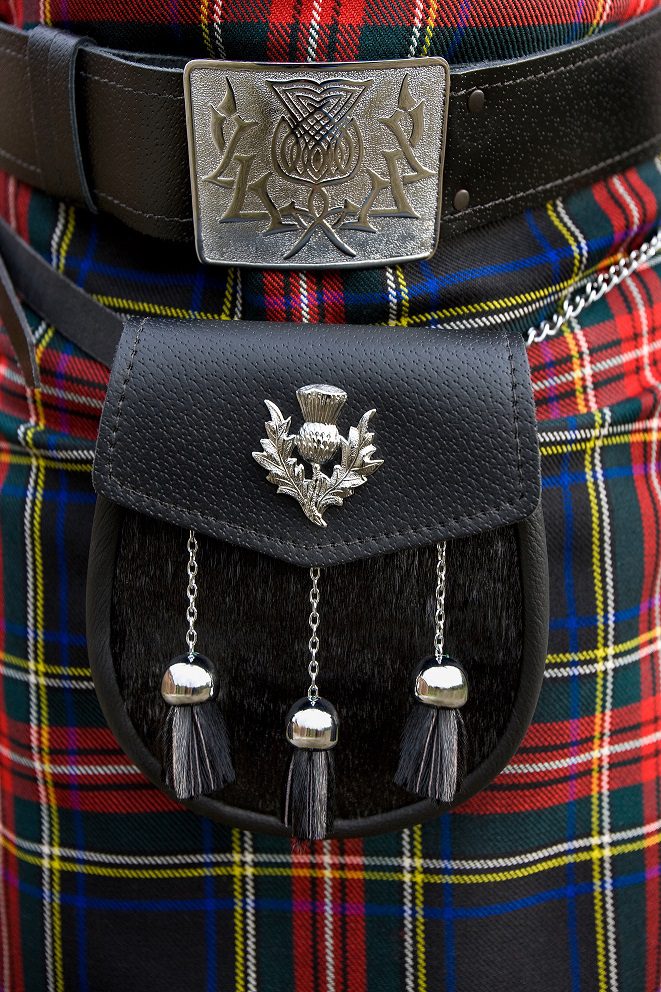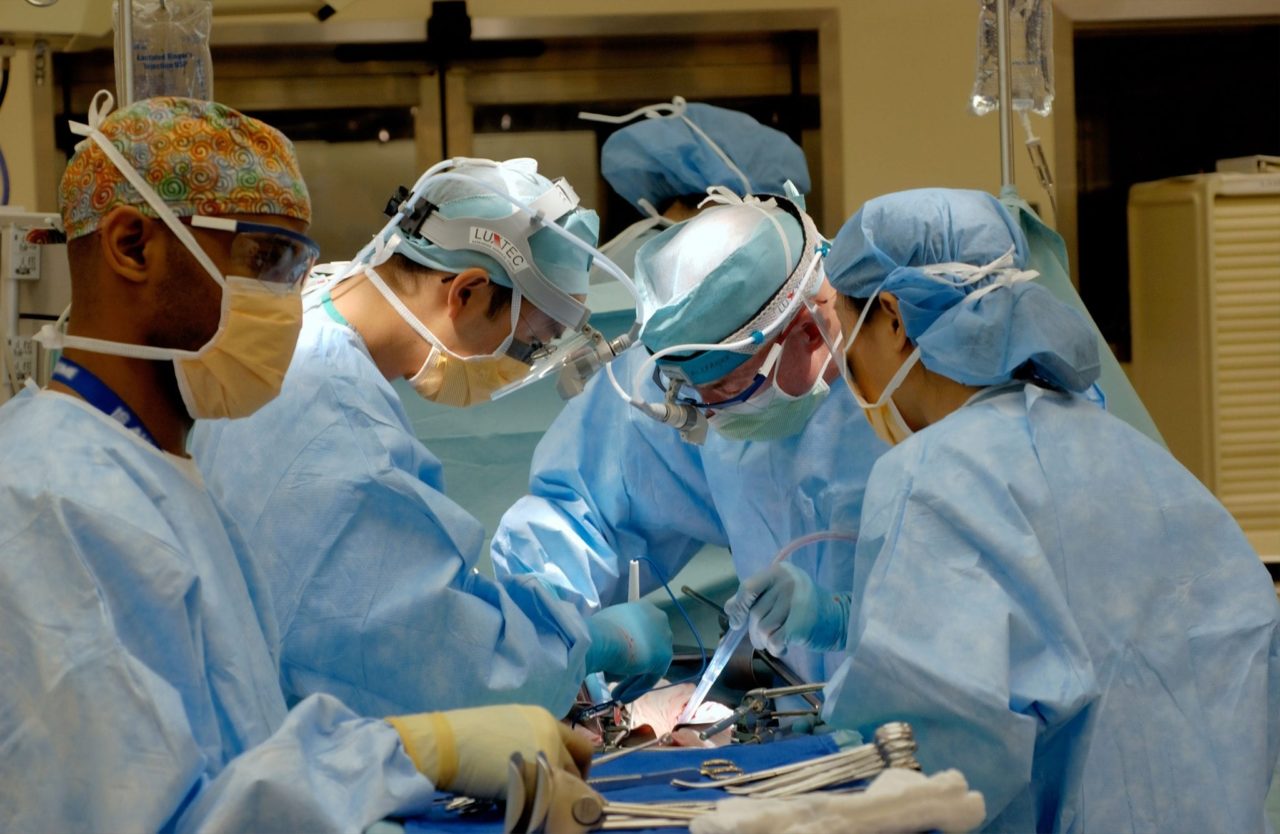Study in Scotland
Study in Scotland – the land of Braveheart
Throughout the centuries, thousands of students have chosen to study in Scotland. This stunning country has a long history of educational excellence going back to the fifteenth century when universities were established at St Andrew’s (1413), Glasgow (1451) and Aberdeen (1495), with Edinburgh joining the so-called “Ancients” in 1582.
Over time, as the number of people who wanted to study in Scotland expanded, another 11 universities were set up in Scotland. At present, it is possible to study over 450 courses at undergraduate level.
Postgraduate Studies in Scotland
If you want to study in Scotland at the postgraduate level you are in good company. Scottish research is highly rated, with 86 percent of studies having an “outstanding impact”. When measured relative to GDP, Scotland’s research is the strongest in the world.
International students currently make up 21 percent of the student communities in Scotland. Recent surveys found that teaching quality is highly-rated at every Scottish university. An impressive 94% of international students who study in Scotland recommend their university and are happy that they chose to study in Scotland.
It is important to note that, when you study in Scotland, Scottish universities have the UK’s highest rates of graduate employment six months after finishing their courses. If you study in Scotland, you are investing in your career and will certainly reap the economic benefits further on down the road.


What do I need to know about studying in Scotland?


Study in Scotland – why choose to study in Scotland
Study in Scotland, one of the most beautiful countries in Europe. Scotland apart from its outstanding universities, excellent research facilities, and internationally recognised degrees, is a feast for the eyes.
When you study in Scotland you will find yourself surrounded by the landscape immortalised in films such as Highlander, Ring of Bright Water, or the frightening Wicker Man all of which showcase the astonishing natural beauty of Scotland.
Mountains and lochs, castles and battlements, fields of flowering heather, herds of highland cattle, beaches and rivers. Hundreds of islands, many of which remain uninhabited, encircle a landscape that just takes your breath away. Scotland is stunning.
Students who come to study in Scotland soon become involved in celebrating its long and proud cultural history. Its kilts and Highland Games, its whisky and piping-in of the haggis on Burns Night are known the world over. Thousands of tourists flock to Edinburgh for its Festival every autumn or flock through the streets to celebrate Hogmanay and sing Auld Lang Syne, arm in arm with former strangers, now friends.
Scotland is sociable and welcoming, and studying in Scotland is a life-changing and wonderful experience.
Study in Scotland - Choosing a university
If you are still trying to decide where to apply to study in Scotland then one of the factors that could influence your final choice is the ranking of the university. The table, below, provides information on the rankings.
Rankings of Universities in Scotland:
World University Rank 2021 | Scotland Rank 2021 | University | City/town |
30 | 1 | Edinburgh | |
92 | 2 | Glasgow | |
178 | 3 | Aberdeen | |
201–250 | 4 | Dundee | |
201–250 | 4 | St Andrews | |
301-350 | 6 | Stirling | |
351–400 | 7 | Edinburgh | |
401–500 | 8 | Edinburgh | |
401–500 | 8 | Strathclyde | |
501–600 | 10 | Paisley |
Times Higher Education World University Rankings, 2021
NB: Edinburgh and Glasgow are both members of the Russell Group, the UK’s most prestigious research universities.
Study in Scotland – how long are the courses?
When you study in Scotland your undergraduate course will run for four years. There is one idiosyncrasy worth knowing, and this is the fact that the four Ancients universities as well Dundee, grants Master’s degrees to students who have done their first degree in the Arts. So these students will receive an MA rather than the usual BA.
If you intend to study in Scotland for a traditional Master’s (postgraduate) degree, this takes around 12 months to complete.
Study in Scotland – courses
Among the most popular courses for international students who apply to study in Scotland are:
- Medicine
- Life sciences
- Business and management
- STEM subjects
- Engineering
- Pharmacology
- Dentistry
- Biological sciences
- Veterinary medicine
- Computer science
- Nursing
In addition, certain universities have an outstanding reputation for particular courses.
Glasgow is known for its forensic sciences.
Aberdeen for modern languages and marine ecology.
Edinburgh for law, physics, and psychology.
Dundee for STEM subjects.
St Andrew’s for international relations, physics and mathematics.
Study in Scotland - Study Medicine in Scotland
There are five universities to choose from to study medicine in Scotland:
- The University of Edinburgh
- The University of St Andrews
- University of Glasgow
- University of Dundee
- University of Aberdeen
In addition, if you wish to take a specialised medical degree, you can apply to institutions such as the Institute of Pharmacy and Biomedical Sciences to gain a degree in Immunology and Pharmacology or Biochemistry and Immunology. Or apply at Glasgow Caledonian University to study Radiotherapy and Oncology, etc. Veterinary medicine is taught in seven institutions:
- University of Glasgow
- University of Aberdeen
- University of Edinburgh
- Edinburgh Napier University
- University of Stirling
- SRUC Scotland’s Rural College
- Glasgow International College
Dentistry degrees – Bachelor of Dental Surgery (BDS) – are available at the undergraduate level and last for five years at Glasgow and Dundee University. The University of Aberdeen offers graduate-entry dentistry courses.
Study in Scotland – the five best medical schools
University | UK Ranking for medicine- 2022 | Additional information |
Dundee | 3 | 1,000 plus students, teaches according to system focus, followed by clinical placements. Five year course. |
Edinburgh | 5 | Established as a medical school in 1726, runs six year courses. High research intensity. |
Glasgow | 6 | A pioneering medical school with excellent resources. One of the largest dentistry and medical schools in the UK. Five year courses. |
Aberdeen | 7 | Five year course, just under 2000 students. In the fourth year students undertake a five-week clinical block. |
St Andrews | 12 | Offers a three-year honours degree , the BSc in Medicine, followed by another three years at a partner medical school to gain Bachelor of Medicine. Renowned for its teaching of anatomy. |
Study in Scotland – requirements for medicine
To study medicine in Scotland you need to pass your secondary school A levels/Maturita/IB with high grades in the following subjects:
University | Subjects required: |
University of Dundee | Chemistry and one other from Biology, |
University of Aberdeen | Chemistry and one other from Biology, |
University of Glasgow | Chemistry and one other from Biology, |
University of St Andrews | Chemistry and one other from Biology, |
University of Edinburgh | Chemistry and one other from Biology, |
In addition, you will need to sit the UCAT entrance exam, and will normally be asked to attend a face-to-face or online interview.


Study in Scotland - law
Study in Scotland has a long tradition of teaching law at a high level. The following universities offer single courses which lead to the LLB degree (Bachelor of Laws) which takes three years to complete. It takes four years if you want to get an honours degree. There is also an accelerated, two-year LLB course, which is solely open to graduates.
Joint degrees in Scotland
Joint degrees are very popular for study in Scotland, see below. Remember, gaining a degree in law in Scotland does not mean that you are qualified to practise law.
You will have to follow the procedures for converting the degree, then take qualifying courses if you wish to practise at the bar or as a solicitor.
Remember, too, that many students who take law at a university in Scotland want to build a career within the industry, media, NGOs or multinational organisations, rather than stand in front of a judge. There are lots of career opportunities in very different fields available to you if you gain a law degree.
Study in Scotland - universities which offer law degrees
You can take law in combination with other subjects and do a joint degree when you study in Scotland. The table, below, shows the most popular joint courses at Scottish universities, but a range of combinations are possible.
University | UK ranking in Law | Most Popular joint degrees |
Glasgow | 5th | Business Economics |
Edinburgh | 7th | Politics History Business |
Aberdeen | 10th | Business European Legal studies |
Dundee | 16th | Languages Gas and Oil Law |
Strathclyde | 24th | Languages Clinical law |
Study in Scotland – costs, and requirements to study law
Average tuition fees to study in Scotland are £23,935 a year.
If you want to study in Scotland you will need to score well in your IELTS exam (7-7.5) or TOEFL (109+) as you need to establish a strong English language proficiency. Competition for places is keen.
IB students are expected to score 29 and above. All the universities require high grades in your final secondary school exams. The equivalent of AAAB in Scottish Highers – Elab will tell you what this translates to in your national scoring system.
Applicants that are applying to study in Scotland at the University of Glasgow will be asked to sit an entrance exam. The LNAT – assesses your aptitude for studying law, rather than what you know about the subject.
Study in Scotland – postgraduate studies
Many international students want to study in Scotland at the postgraduate level because of Scotland’s reputation for generating ground-breaking research. Scottish universities have cutting-edge technology, modern facilities, and amazing libraries. Perhaps the best way of illustrating how much Scotland has contributed to the world is to draw up a list of Scottish inventions and innovations. The products of its research!
Study in Scotland – Scottish inventions and innovations
- TV
- steam engine
- telephone
- vacuum flask
- cloning of the first sheep, Dolly
- discovery of Proxima Centauri
- hypodermic syringe
- insulin
- penicillin
- asthma therapy
- discovering the composition of the rings of Saturn
- MRI scanner
- keyhole surgery
- earthquake risk assessment methodology
- flush toilet
- kaleidoscope
- electric toaster
- beta blockers
- typhoid vaccine
- proof that mosquitoes carry malaria
- quantum mechanics… the list is virtually endless
And don’t forget that Higgs, of the Higgs-Boson particle, is an emeritus professor at The University of Edinburgh and St Andrew’s awarded an honorary doctorate in music to none other than Bob Dylan.
If you are feeling overwhelmed by the broad range of choices open to you to study in Scotland, call us here at Elab. We will talk you through the possibilities, narrow down options, and help you find the best universities and courses for you. Remember, you will study in Scotland for four or more years, so it’s also important to find the ideal location since it will become your home.
For further information on the cities and towns of Scotland, contact us at Elab and we will match your preferences with the perfect university.


Study in Scotland after Brexit
The UK has left Europe. You will therefore now need a student visa to study in Scotland, England, and Northern Ireland. The process is simple and can be done on your smartphone. As long as you can upload a biometric passport to confirm your identity – a national identity card will not be accepted.
Study in Scotland – applying for a student visa
To study in Scotland you will have to apply for a Tier 4 student visa, which should be done in your home country, and submit a number of documents:
- provide a copy of your passport
- prove that you can support yourself financially
- have an unconditional offer from a university
- demonstrate that you can speak, write and understand English (for example, by uploading an IELTS certificate)
- pay an application fee of £348 ( at time of writing)
- pay the Immigration Health Surcharge (IHS) a £470 charge, which will cover the cost of using the National Health Service and provide you with access to doctors, dentists, and hospitals. The IHS is not optional and forms part of your student visa application – even if you already have private health insurance. This surcharge fee is an annual one, so if you are intending to study for three years, you will need to pay £470 x 4 = £1880.
Remember that you are entitled to work 20 hours a week during term-time under the terms of your Tier 4 student visa.
Study in Scotland – requirements
You will need to provide proof of language proficiency and pass your TOEFL with 90+ or the CAE and CPE with 176.
The course requirements to study in Scotland vary from department to department and university to university but, overall, Scottish universities require an IB passed at 32-36, expect applicants to pass three to four subjects at a higher, expanded, level in their secondary diploma exams.
Universities will look at a combination of your exam grades and the subjects you have covered at school. Universities will also convert your national qualifications into UCAS Tariff points.
If you wish to apply for Science and Engineering undergraduate courses at the University of Edinburgh, you will be expected to sit an entrance examination.
Study in Scotland – the application process
Applications to study in Scotland at the undergraduate level are processed through UCAS. The UK‘s central admissions system and, as in England. You can apply to five universities and for more than one course at each university.
Deadlines for applications depend on the course, with the medicine, dentistry, and veterinary science courses closing on 15 October. All other courses remaining open until 15 January. Postgraduate students normally apply to individual universities, whose deadlines either vary or are not set in stone. Since some courses remain open until every place has been filled. Check with Elab for up-to-date information.
To study in Scotland at the undergraduate level, you will be expected to provide some or all of the following documents:
- Transcripts of your grades
- A Personal Statement
- A portfolio of your work (for art, fashion, fine arts, etc)
- One or more academic references
- A completed application form
- A fee of £22 for a single application, and £26.50 for multiple applications to universities
UCAS Clearing
If you are not offered a place, do not despair! You can use UCAS Clearing which runs from July to October. You can see what courses still have available places and submit further applications. Not all universities and not all courses are available through Clearing. You might be wise to modify your choices while remaining in the same basic field.
For example, you could have originally applied to study art and design, and plump for art history or interior design and fashion. It is a seller’s market, and you will have to wait and see what is available.
Once you have received a reply and been offered a place, you are ready to move on to the next stage of studying in Scotland, by applying for your student visa.
Study in Scotland -postgraduate applications
Postgraduate applications are usually managed by individual universities, which set their own deadlines, or through the UCAS Postgraduate website.
Applicants for postgraduate studies will have to submit:
- a 500-word Personal Statement detailing your academic record and experiences
- undergraduate degree
- references
If you wish to study in Scotland at a conservatoire, you will need to submit an application through CUKAS, the official UK website for conservatoires.
Study in Scotland - costs
Study in Scotland – tuition fees
Post Brexit, EU citizens will no longer be treated as home students therefore will have to pay a different tier of fees for tuition. EU students will also no longer be eligible to apply for government loans.
The exception to this rule is anyone who has settled status or whose application for pre-settlement status is still being reviewed.
The opportunity to apply for settlement shut on 31 July 2021 and the new financial rules thus apply to students beginning their courses from 1 August 2021.
Nevertheless, individual universities and banks have stepped into the breach and offer scholarships and bursaries, or affordable student loans to cover the cost of tuition fees. Students are also permitted to work 20 hours a week on a student visa, and this can make a significant difference to your budget.
Post-Brexit examples
To take one example of the fee structure in place post-Brexit here are the costs of attending the excellent University of Glasgow as a new student. Beginning in 2022: undergraduate degree, depending on the course, from £10,000 to £26,000 per year. Postgraduate students, from £15,000 to £30,000 per year.
The University of Glasgow offers a number of scholarships, including the EU Welcome Award, which gives you £5,000 per year towards your tuition fees. You can also apply for the Undergraduate Excellence Award, which gives £7,000 towards your tuition fees every year.
If you would like to learn more about scholarships to study in Scotland, contact Elab and we will advise you on what you can apply for.
Study in Scotland – can I study in Scotland for free?
The short answer is No. However, there are many generous scholarships available, based on students’ status, academic achievements, and their fields of study. Contact Elab for further details, and we will explain all the possibilities open to you when you study in Scotland.
Study in Scotland - cost of living
The cost of living at universities in Scotland varies from city to city and town to town. Overall, the costs of studying in Scotland are 20 percent lower than living expenses in London, and 10 percent cheaper than in the rest of the UK.
As a rough guide, you need around £800 a month to cover your expenses, the largest part of which is the £375-475 you will have to spend on accommodation. Part-time work, which is, of course, easier to find in large cities such as Glasgow. Edinburgh can quite easily cover a significant percentage of your monthly expenses.
Cost of rents in Scotland
When you study in Scotland the rents you pay will vary according to where you decide to apply. You have many choices in Scotland – from the peace and glorious scenery of the Highlands to the riches of the lively capital. When you study in Scotland you should budget around £430 a month for a one-bedroom flat in Dundee. Which is 25 percent below the national average, as opposed to £670 for comparable accommodation in Edinburgh. A single room at a student residence in Glasgow will cost around £150 a week while the University of Aberdeen’s student housing costs are from £92-£156 a week.
As you can see, there is quite a gulf in costs between smaller towns and major urban centers. This is further affected by whether you wish to live in the town or city center or are quite happy to live in the suburbs and travel to university.
Study in Scotland - most popular student cities
Study in Scotland – Edinburgh
Scotland’s historical capital, home to Arthur’s Seat, Holyrood Palace, and a busy student community. The city population numbers around 500,000, containing five of Scotland’s universities: University of Edinburgh; Edinburgh Napier; Heriot-Watt; Queen Margaret; Scotland’s Rural College University.
Edinburgh blends the ancient with the cutting edge and is rich in traditional and modern buildings, bars and restaurants. Its annual arts festival attracts visitors from all over the world to see plays, musical extravaganzas and poetry readings. All types of events. Edinburgh is regularly ranked in the top ten best cities to live in the UK.
Study in Scotland – Glasgow
Glasgow is the largest city in Scotland and is a lively, busy, and arty environment. With the greatest concentration of creative industries outside London, two famous rival football teams, Rangers and Celtic, and a reputation for providing amazing music and supporting innovative designs in every sector of the arts.
It probably has the best shopping in the country and is green, striking and ever-changing. Its School of Art and Royal Conservatoire are world-renowned, and it is home to three Scottish Universities: Glasgow University, Glasgow Caledonian University and Strathclyde University.
Study in Scotland – Dundee
Dundee has two universities, the University of Dundee and Abertay University, while St Andrews is located just outside the city, and boasts one of Scotland’s oldest institutions of learning and a renowned golf course. Dundee is quieter than Edinburgh and Glasgow, and its coastal location and green surroundings make it suitable to students who enjoy the outdoors, farmers’ markets or visiting the famous Camperdown Wildlife Centre. As a UNESCO City of Design, and the birthplace of Grand Theft Auto, Dundee has forged a reputation for technological innovation, and its annual jazz festival attracts people from far and wide.


Study in Scotland – Aberdeen
Situated on Scotland’s east coast, Aberdeen has striking silver-grey granite architecture and a love affair with the sea which goes back centuries. It is the UK’s sunniest city, the driest region in the northeast and offers many coastal walks, hiking trails, and opportunities to go surfing. Compact and perhaps slightly more conservative than the capital. Aberdeen’s staid character has been eroded by its connection with the North Sea oil rigs. Many students and energy workers enjoy its varied and lively nightlife. Aberdeen University and Robert Gordon University are situated here.


Study in Scotland – Inverness
Inverness is a charming, red-brick, and bustling town up in the Highlands, and home to the University of the Highlands and Islands. It is regularly voted the happiest place to live in Scotland. Long-horned highland cattle graze peacefully on the road to Loch Ness, and the natural surroundings offer wonderful opportunities for hiking, eating freshly caught fish on the banks of the loch, and cycling expeditions.
Study in Scotland – Stirling
Home to the University of Stirling, the town is well-known for its Wallace Memorial and Castle and Victorian architectural heritage – including its jail and the Victorian Sterling Arcade, where you can pick up unique pieces in its many niches, and independent shops. Its relatively small population of 37,000 creates a welcoming environment and has a strong community spirit.


Elab’s Five Steps to Success:
![5 steps to success Elab Education Laboratory [ENG]](https://elabedu.eu/wp-content/uploads/2022/06/english-5-steps-poster-03-1024x580.png)
![5 steps to success Elab Education Laboratory [ENG]](https://elabedu.eu/wp-content/uploads/2022/06/english-5-steps-poster-03-1024x580.png)
Step 1: Student Induction & Diagnostics
- Preliminary notes of students academic record, interests and aspirations
- Student Diagnostics
Step 2: University Search & Student Profile Development
- Preparation of Universities Research Table
- Extra-curricular Activities Development (if applicable)
Step 3: Process Planning & Preparation
- Finalize the overall process plan & individual Timeline
- Review Mentor and Tutor plans in relation to documents, exams and activities
- Passing the required entrance exams
Step 4: Application Finalisation & Submission
- Update Application Checklist for Final Choice Universities requirements
- Submit student academic application
Step 5: Offer Acceptance & Decision Time
- Review university offers
- Provide students with contacts and links to accommodation offices
Study abroad with Elab - reviews from our applicants:
Students who study abroad have very positive opinions of
the courses and life in general. Below are a few examples of opinions from Elabs students studying abroad or who recently completed their studies:




